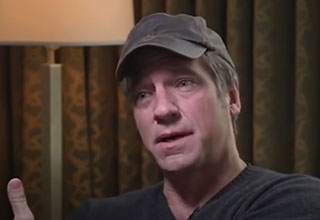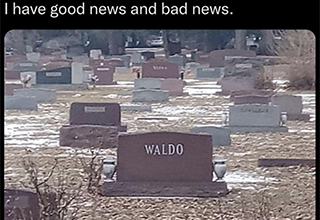
Fears about AI setting the world on fire, breaking down our ability to discern truth from fiction, and wiping out millions of jobs aren’t entirely misplaced. However, that future - a future where people lack media literacy, lose their jobs to automation and fall further into realistic fantasies of their own creation - isn’t a by-product of AI. It’s a reality that is already here and has been for some time.
So far, AI is pretty good at writing articles (I am not a computer I promise). It can edit videos, color-correct those videos, make voiceovers for those videos and even watch those videos if it wants to. AI can make some pretty amazing images too, that is if you don’t need people in them with realistic-looking fingers. And while we’ve covered the horny implications of this, the drip-plications and the less serious implications, we now focus on the historical implications of AI imagining world events and natural disasters that never happened.
Something wild is happening on the Midjourney subreddit.
— Justine Moore (@venturetwins) March 26, 2023
People are telling stories and sharing photos of historic events - like the “Great Cascadia” earthquake that devastated Oregon in 2001.
The kicker? It never happened. The images are AI-generated. pic.twitter.com/2ziHJYsTDK
This series of presidents welcoming alien leaders at the White House is particularly good.
— Justine Moore (@venturetwins) March 26, 2023
It nails the style and lighting of photos in each decade… pic.twitter.com/R5GGRrnpU0
On the subreddit, r/midjourney, you’ll find plenty of examples of people using Midjourney, an AI-generation image tool to create images of presidents meeting aliens, granny uprisings, and warrior selfies. AI, like a knife or a calculator, is simply a tool, and as such, it’s only as good, or as dangerous, as the person wielding it.
Anyway - these may have been the first broadly viral Midjourney photos, but I highly doubt they’ll be the last. pic.twitter.com/rYYPpv72Vd
— Justine Moore (@venturetwins) March 26, 2023
But what has caught our attention has been how fast these ai-generated images have gone from “clearly fake” to “yo, look how dripped out the pope is.” A side effect of this is we can now look back on “historical events” that people cooked up entirely in their heads.
One of the things I love about AI:
— Justine Moore (@venturetwins) March 27, 2023
The space is moving so quickly that it often takes only days (or in this case, hours) for my predictions to come true https://t.co/3USVr47fWH
Could these images be predictive by nature? Meaning, could there one day be a major earthquake on the Cascadia fault line, causing freeways to collapse, or when aliens finally do arrive, are they holding press conferences with American presidents? Probably, yeah.
So whether this fascination with imagining an alternative reality speaks to our displeasure with the world we currently live in, or the world we may one day inhabit, we know the power of imagination has never been more important than it is today. And likewise, the ability to discern what is real and what isn’t.






0 Comments